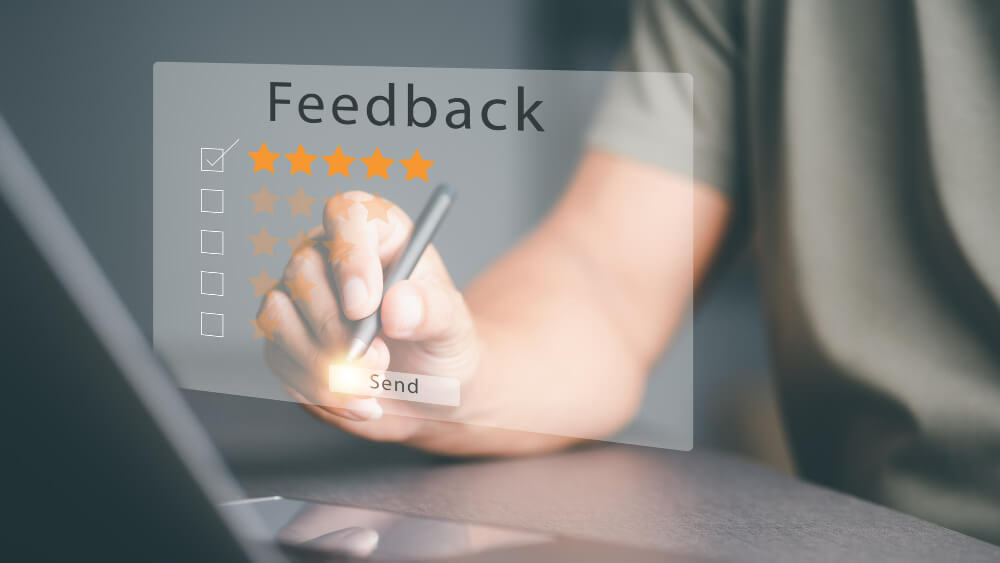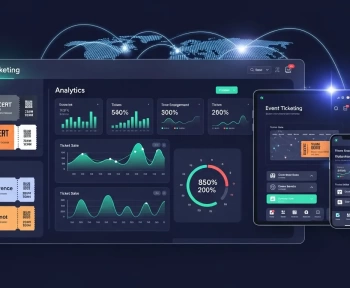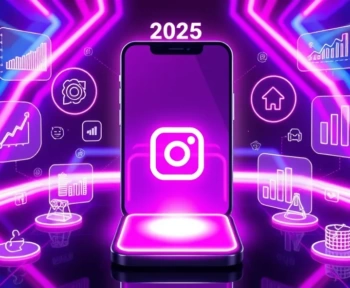Efficient event registration and ticketing are vital to the success of any gathering: a conference, seminar, festival, or whichever. In the present situation, when time and convenience appear to be substantially in demand by citizens, event organizers are compelled to employ all the possible technology aids to provide the experience for their attendees. Installing a reliable event registration and ticketing platform can be the best option in this line. This blog explores the significance that these platforms hold and dwells more into the growth of mobile apps for events and their relevant features along with trends in the application of the latest technology in event management.
Table of Contents
The Importance of Event Registration & Ticketing
Event registration and ticketing are considered two of the most vital components of successful event management. It serves as a starting point for the visitors, and any one aspect may be good or bad but directly influences the rest of their experience. A streamlined process allows easy collection of all important information about the visitors, and facilitates attendee data management and actual real-time tracking of their registrations, while an inefficient process will only discourage intending visitors from attending and may further lead to low turnout rates and dissatisfaction.
Simplifying these processes improves both user satisfaction and the workload of the organizer. Ensuring a sound event registration and ticketing process is thus critical to the event’s success.
The Rise of Mobile Apps for Events
As smartphones become the norm, events have experienced a manifold increase in the use of mobile event apps for events. Such apps then grow to be powerful event tools that enrich attendee experiences and overall event management. With such tools, organizers can now disseminate information at the point of need, foster networking, as well as offer personalized experiences critical factors for success at any event.
Mobile event applications make it quite easy for attendees to procure registered and buy tickets right from their mobile devices. Since this saves a lot of time, the registration rate is also more as well and the attendee experience is more perfect. Moreover, the location for all info on the event is now available in the form of mobile applications which allows attendees to move around quickly as well as to get informed very easily.
Key Features of a Mobile Event App
To maximize effectiveness, a mobile event app must include essential mobile event app features that cater to attendee needs:

1. User-Friendly Interface
An interface will be user-friendly for encouraging engagement, therefore – the attendee may easily navigate the app and access information with minimal effort. This could be something as simple as clear icons and intuitive menus-all this may affect the usability, letting participants quickly find what they need.
2. Real-Time Updates
The event schedule is usually volatile, so the approach should be to update them in real-time. With push notifications, an attendee is updated on changes in schedules or speakers and even reminders about a session, ensuring that they are abreast with the things happening within the event. It will keep the attendee engaged, but at the same time, will help them organize their time so well that they do not miss any important session.
3. Networking Capabilities
One of the motivations for attending an event is networking. With mobile applications, it will be possible to connect through features such as attendee lists, messaging capabilities, and appointment scheduling, which would set up meaningful interactions. From there, sharing through social media options can be integrated, making sure a connection extends beyond just an application, deepening networking potential.
4. Feedback and Polling Features
Collecting feedback during and after the meeting is imperative for maintaining improvement. Polls and feedback may be included to enable organizers to assess attendees’ satisfaction and present the same for the next events. Real-time polling during sessions can also increase attendees’ engagement and participation, making the attendees valued and heard.

5. Interactive Maps and Schedules
Easily interactive maps and personal schedules do make a difference in making attendance more fun. A user can easily locate where different venues, sessions, and amenities are; hence such a user navigates the event very smoothly. Personalized agendas enable attendees to plan their time strategically, thereby keeping the event more interactive and productive.
Conference Apps: Transforming Event Management
Conference apps are specialized mobile applications designed to cater specifically to conference attendees. These are digital companions to ease your experience before, during, and even after an event. How attendees connect with event content as well as with each other would change entirely with the existence of conference apps within event management.
Must-Have Conference App Features
To ensure that a conference app meets the needs of its users, it must possess several vital conference app features.
- Agenda and Session Information: The event agenda with session times, topics, and speaker information ought to be accessible to participants. This makes it possible for attendees to plan their participation intelligently.
- Speaker Profiles and Q&A Functionality: Provides speaker profiles so that attendees can learn more about the backgrounds and expertise of the speakers. A feature like Q&A encourages interaction – allowing attendee questions during sessions – and therefore connects attendees with the speakers themselves.
- Push Notifications: Send timely push notifications through the app to nudge participants to attend sessions, and get in touch with other like-minded people who can later contribute to relationships or other activities related to the event.
- Networking Opportunities: One of the in-built networking features is always there to help connect attendees, which encourages meaningful engagement. It may include options such as direct messaging, scheduling one-on-one meetings, or even creating attendee profiles that can show others’ interests and expertise-helping participants find someone with like-minded interests and engage with them.
- Feedback and Surveys: A mechanism for feedback should help people submit their opinions about sessions, speakers, and general attendee experiences. This feature can include quick surveys or rating systems, which can give organizers important information on how to improve the event.
Exploring Event App Technology Trends
As technology continues to evolve, staying abreast of event app technology trends is essential for organizers looking to enhance their events. Here are some key trends shaping the future of event registration and ticketing:
Integration with Social Media:
Most users are eagerly waiting to connect with others through social media. Through the event apps, social media can be integrated, which enables the user to share experiences, promote sessions, and develop community through the use of different kinds of social media. This can strengthen the reach and influence of the event.
AI-Driven Personalization:
Event experiences will increasingly be personalized, thanks to artificial intelligence. With the basis of attendee data and preferences, event apps can suggest the right sessions to attend, the right people to connect with, and the content to see. The result would be higher engagement for attendees.
Virtual and Hybrid Event Capabilities:
Virtual and hybrid events imply that an event app must become a space to accommodate the presence of onsite attendees while also taking into account remote virtual participants. Live streaming, virtual networking rooms, and interactive Q&A sessions are some examples of features that ensure inclusivity and maximize the reach of the target audience.
Data Analytics for Better Insights:
Data analytics is best used by organizers to increase their insights into attendee behavior and preferences. In an event, this information would go a long way in preparing organizers in regard to future event planning as they ensure that their needs evolve over time.

Conclusion
Integration of an efficient event registration and ticketing system is the way toward events’ success. As demand for streamlined processes and better attendee experiences increases, so does the use of mobile apps for events. Organizers who integrate key features and embrace the progressive trends in emerging technologies make unforgettable events that eventually connect with guests.




